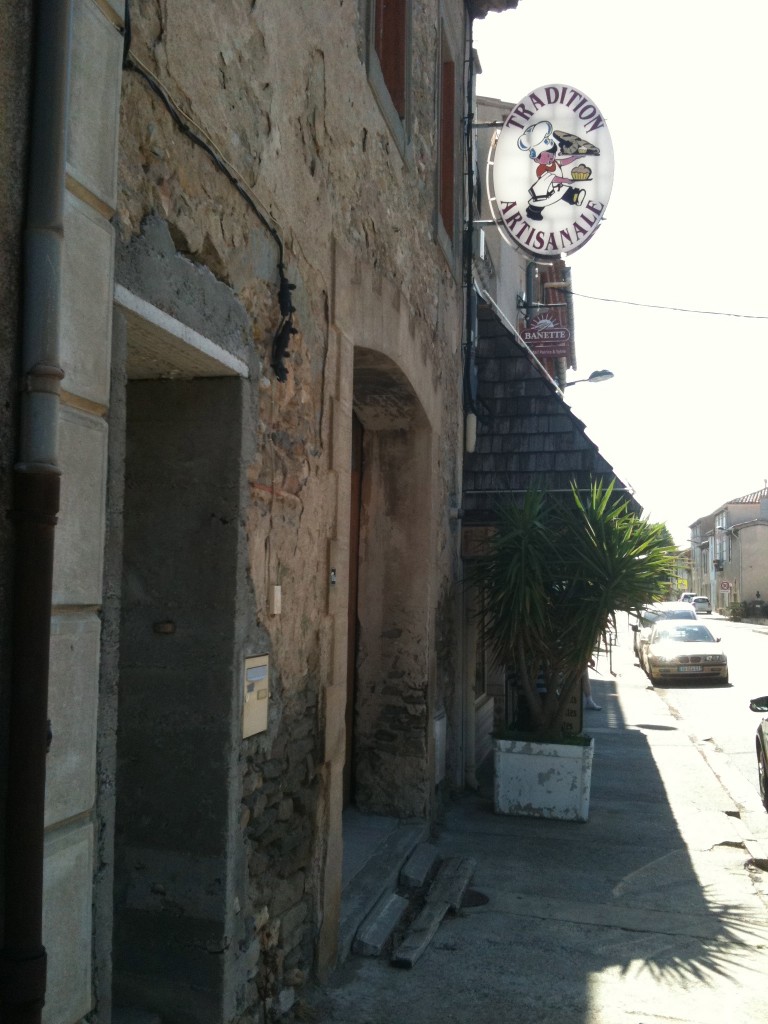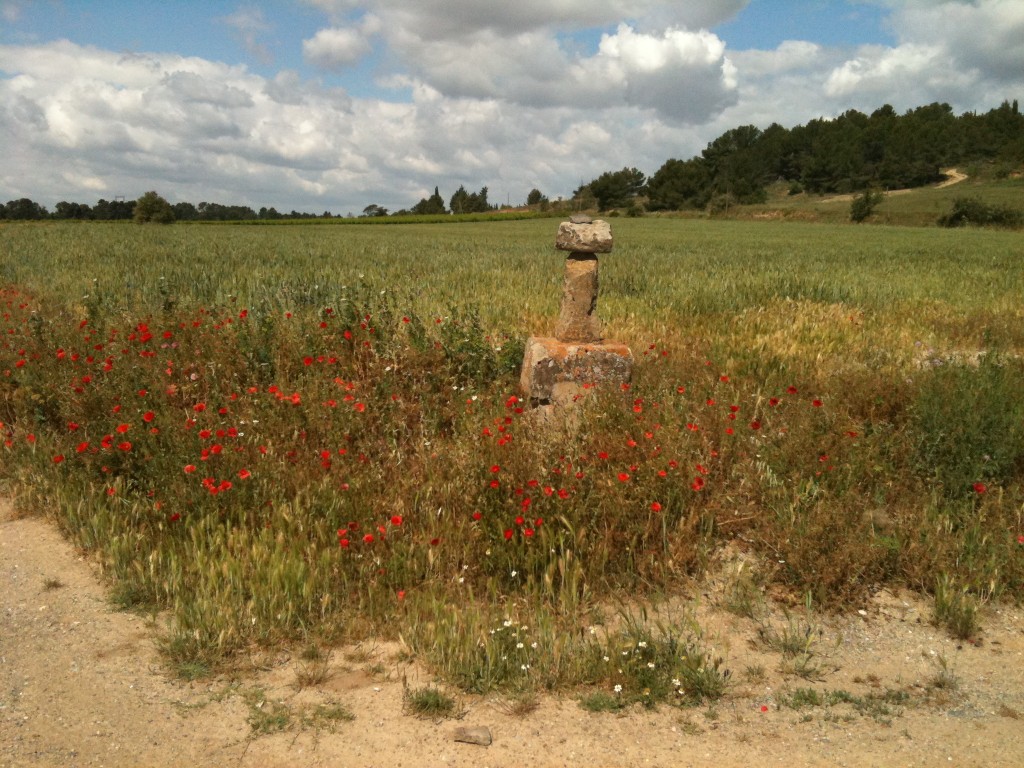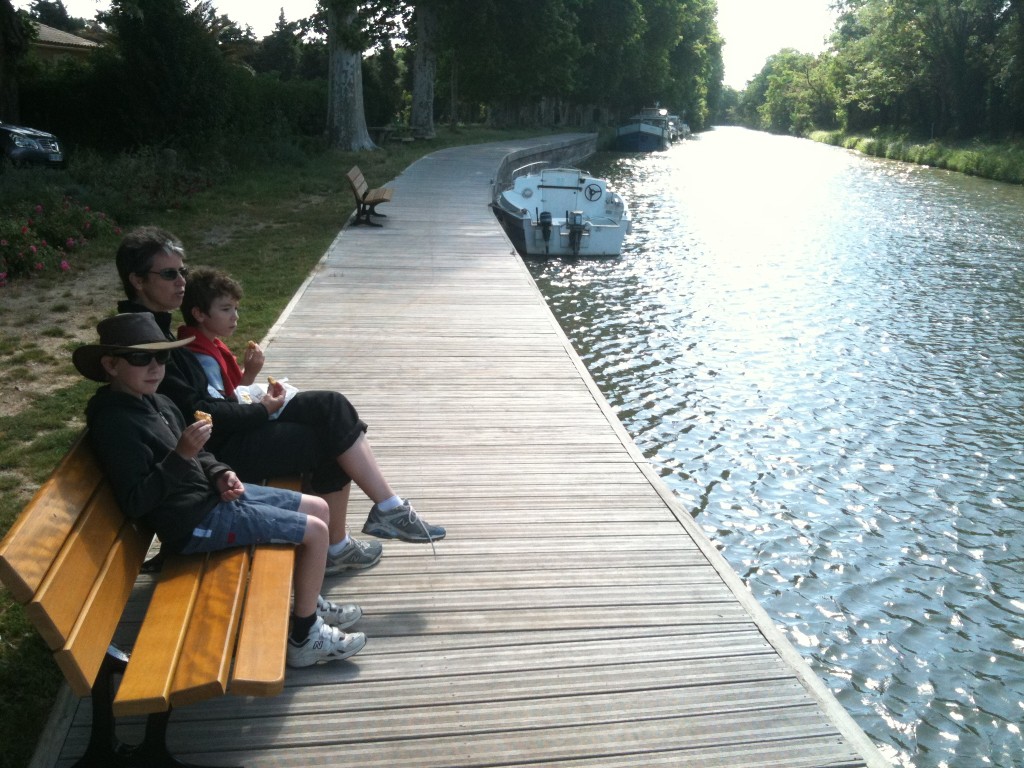The wonder of French bread

Probably our favorite thing in France is being able to wander down to a boulangerie and buy some fresh French bread. It doesn’t cost much. For a decent flute or baguette you’re looking at 60 to 90 Euro cents (say A$0.75 to $1.20). And ‘decent’ doesn’t mean ‘average’ or ‘OK’, it means ‘really good’. Exactly why France can produce such good bread in every village has been obsessing Jennifer and I over the last few days. And in this case Google has not provided the answer.
There are some hints. The first is that French bread does not contain preservatives. That means you need to buy it fresh daily. In turn, that means a daily loaf is cheap. In Australia a loaf of bread designed to last a few days costs three times as much as a loaf coasts here – but then here you need to buy three loaves in that time. We were amused by the name the Italians have for the sort of bread we buy at home: ‘dead bread’.

Buying fresh bread daily is a way of life thing. You have to have a boulangerie that you can get to easily on the way to or from work. So there’s a market-need for a bakery every few hundred meters. So all of these small boulangerie do have a surrounding captive market.
The other societal factor is that people eat bread for breakfast. Apparently the bakers of France bemoan the fact that more French people are turning to cereal for breakfast. And maybe that entrenched resistance helps explain the poor range or breakfast cereals and the difficulty finding fresh milk.
There is a quality issue of course. To name yourself a boulanger you must have undergone an apprenticeship. Creating fine bread is not something taken lightly in France.

Somehow all of the factors come together to ensure that in any French village you can find fantastic bread. Because it’s all baked individually in small lots there’s also a great range, backed up by pastries; usually with local varieties. Here in Azille they’ve got some lovely pastry logs with a religious theme – perhaps because of the local monastery.
This morning we didn’t do our usual walk to the boulangerie in Azille. Instead we rode to the nearby town or La Redorte and bought morning tea there. We sat in the sun beside the Canal du Midi and ate our puffy, sugared pastry once again contemplating the economics of the whole thing.
Economics, skill, magic – don’t really care, we just love the result.